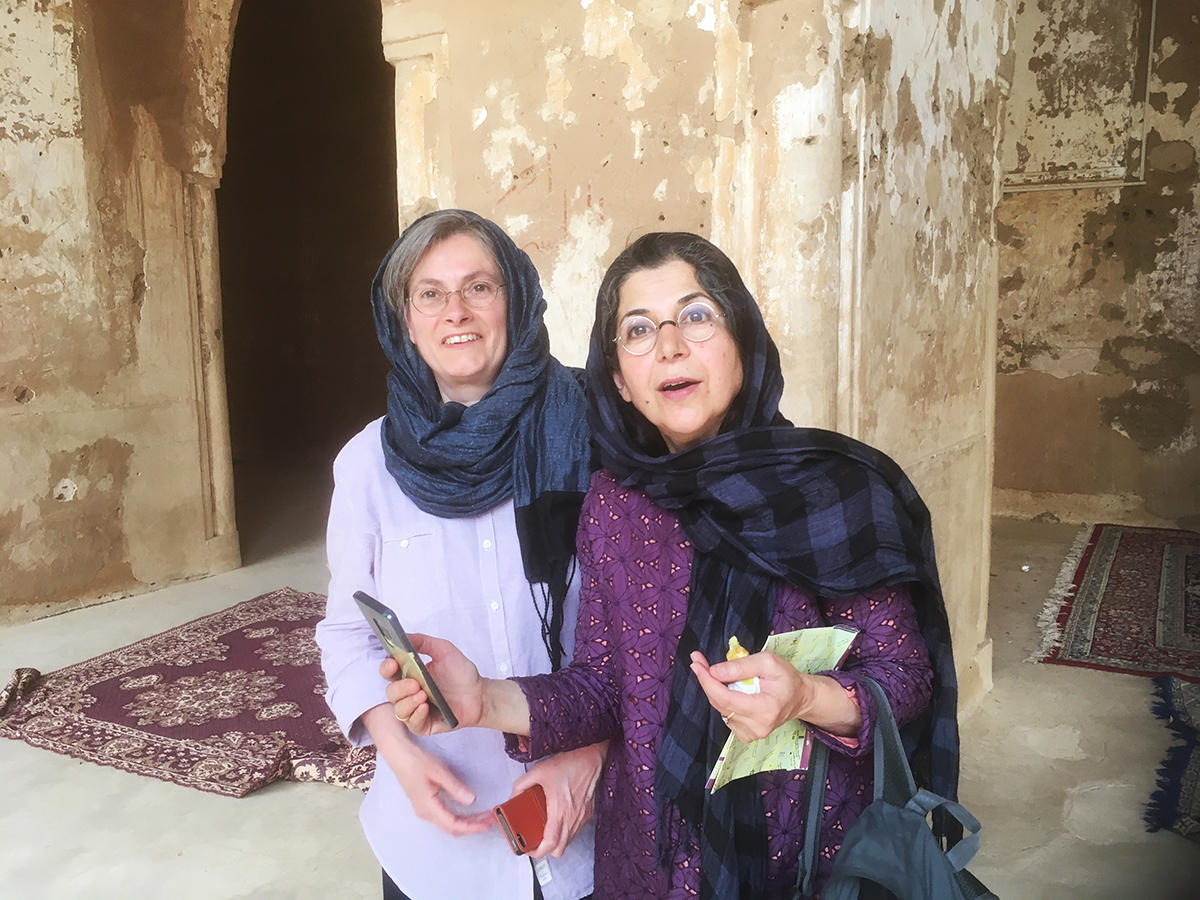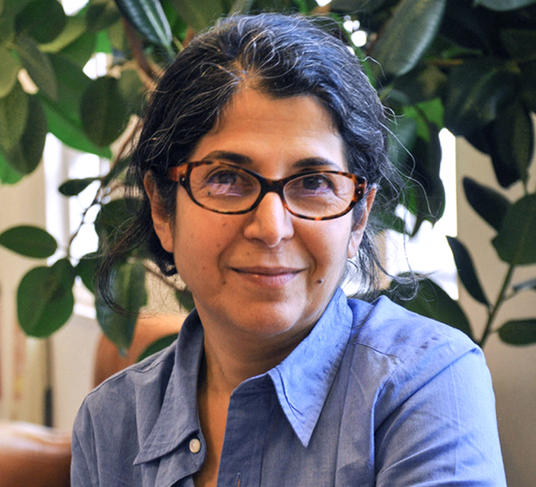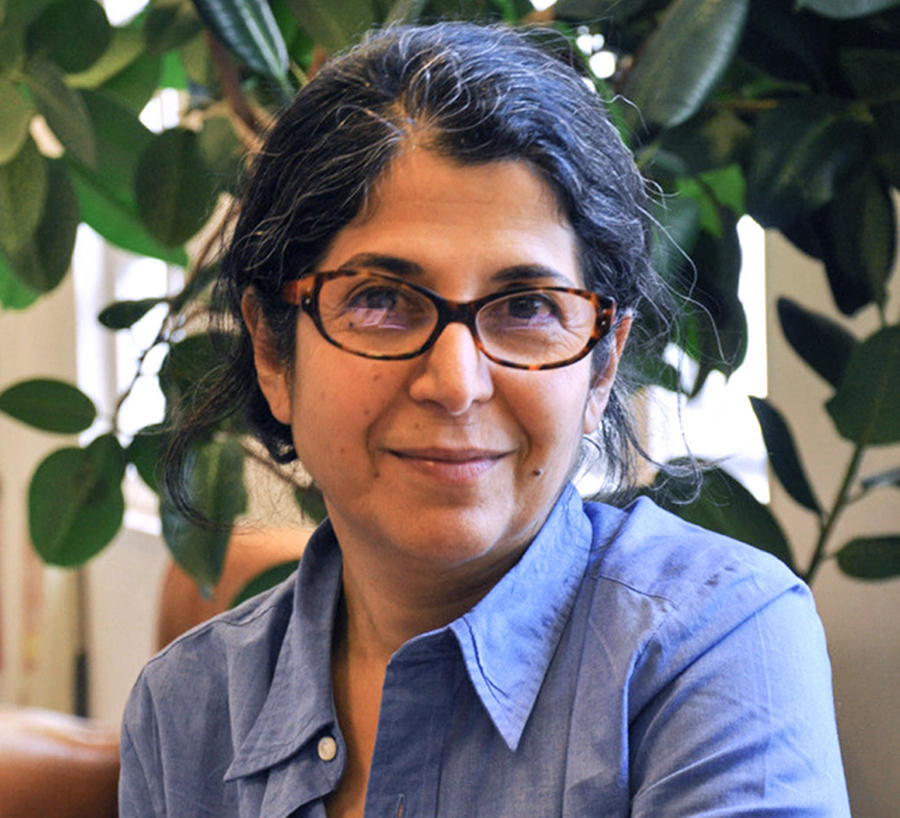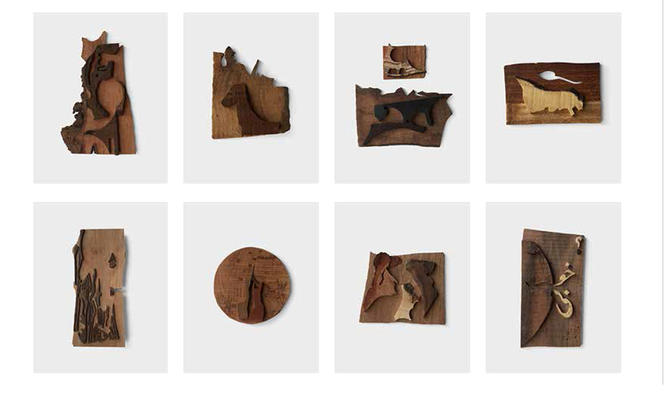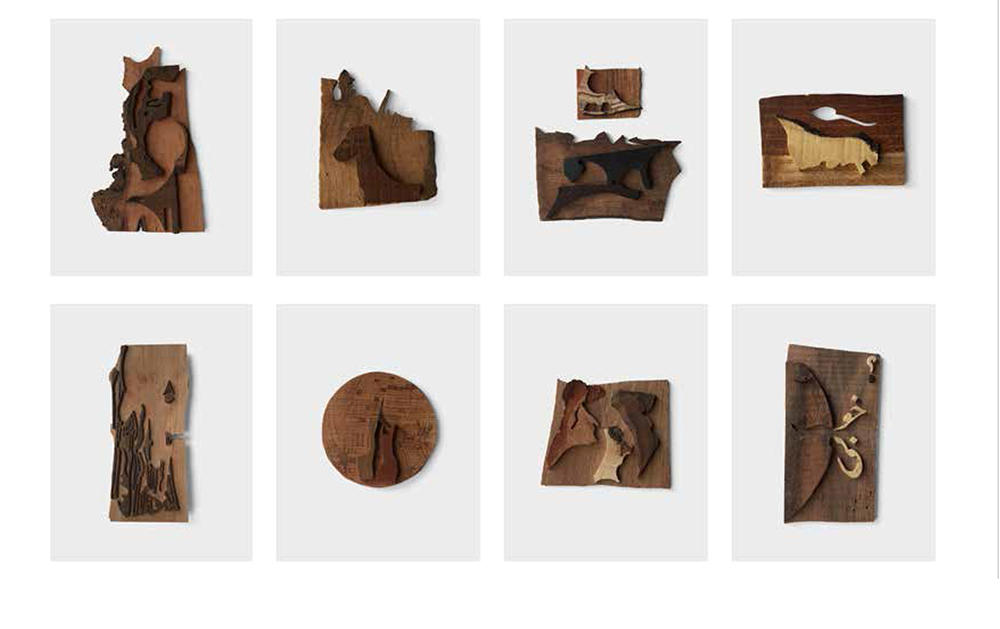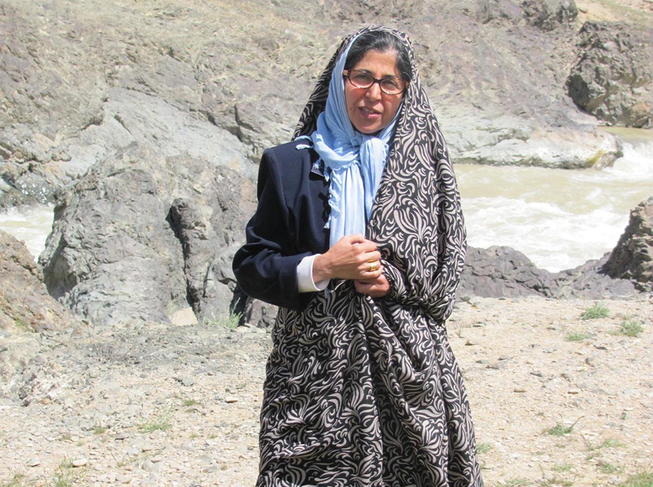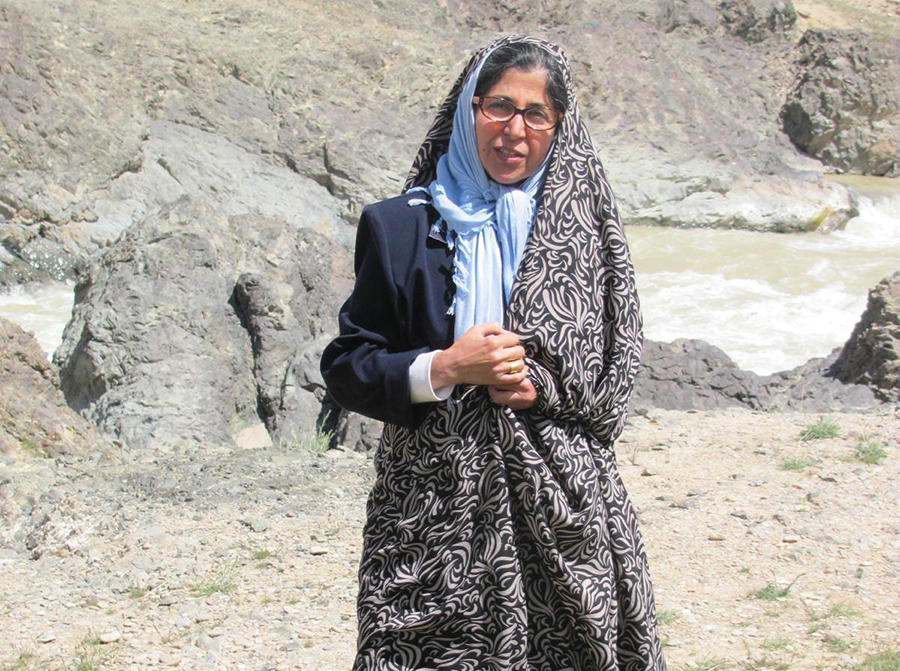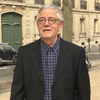You are here
Fariba Adelkhah’s struggle for freedom

We asked those who know her best – colleagues, students, friends – to describe in a few words the personality of Fariba Adelkhah, who on 16 May, 2020, was sentenced in Iran to five years of detention for “collusion with the intent to harm national security” plus one year for “propaganda against the Islamic Republic”. The result was an outpouring of respect, affection and admiration for a major figure in social science research, the recipient of the Irène Joliot-Curie Prize for “Female Scientist of the Year” last December.
“Iranian through and through, yet with a deep-felt love for France and its culture, very inquisitive, tenacious, always able to get back on her feet even when she has hit rock bottom,” confides her partner Roland Marchal. “She’s a real character – and therefore inspiring. She is radiant, generous, hardworking, blessed with a sharp sense of humour and self-deprecation but she always takes her job as a researcher very – very – seriously,” says her colleague and close friend Béatrice Hibou of the Sciences Po Center for International Studies (CERI).1 “A personality of complete integrity and a free thinker, ready to die unbowed during the hunger strike that she began in late 2019 to protest against her imprisonment and to uphold her freedom, her profession and her dignity,” adds Jean-François Bayart, a professor at the Geneva-based Graduate Institute of International and Development Studies (IHEID), and one of the pillars of her support committee.2
Deprived of freedom for two years
The French-Iranian anthropologist, while working at the CERI, was arrested at Tehran airport on 5 June, 2019 by the Revolutionary Guard Corps, the ideological military branch of the Iranian regime, along with Marchal, also a CERI researcher, who had come to join her on a private visit. Both were detained at Evin Prison, before Marchal was freed in March 2020. Released in turn for health reasons on 3 October, 2020, following a Kafkaesque trial and a 49-day hunger strike, Adelkhah is still under house arrest. “The CNRS denounces with the utmost severity the deprivation of freedom inflicted to this day upon Fariba Adelkhah, a talented and dedicated anthropologist,” declares the CNRS Chairman CEO Antoine Petit. “Her arbitrary conviction and imprisonment, and now house arrest, constitute a grievous infringement of the principle of free movement indispensable to the pursuit of research. This has gone on far too long.”
Wearing an electronic ankle bracelet, the researcher was able to return to her home in north-central Tehran. Her sentence still stands and she is forbidden any outside contact except for family members and a few close friends. “Fariba is visited by the police every day,” Marchal reports. “She cannot go farther than 300 metres from her place without special authorisation, for example to go to the hospital or visit her parents’ graves.” Her spirits, not surprisingly, are volatile. “She has ups and downs – sometimes severe downs, especially since her computer and most of her work documents have been confiscated,” he adds. “Since the Iranian authorities do not recognise dual nationality, she will not be exchanged for an Iranian citizen being held in France or Belgium.3 For the moment, she herself does not want to leave her native country – she wants to regain her freedom in Iran. Of course, she would be very happy to come back to France, but not before being cleared of the charges against her and obtaining a guarantee that she can return to her homeland whenever she wants.”
Born in Tehran in 1959 to a middle-class family originally from the Khorasan region of northeastern Iran, Fariba Adelkhah expressed this same thirst for freedom, knowledge and emancipation when she left the country as a young secondary school graduate to study in France. She was supported by her father, a modest civil servant, highly devout and cultivated, who financed his daughter’s studies even though it meant sacrificing his plans for a pilgrimage to Mecca.
Inspired by Simone de Beauvoir
“One of the reasons she chose to study sociology at Strasbourg University, starting in the autumn of 1977, was that she had read a Farsi translation of The Second Sex by Simone de Beauvoir,” Bayart recounts. “The book was a revelation to her. Also, like most students of her generation, she was very much influenced by the demand for truth and justice expressed in the writings of the Islamic philosopher Ali Shariati, who had himself studied in France in the 1960s, and who became one of the main inspiring forces behind the Iranian revolution of 1979, before being demonised by the Islamic Republic.”
Adelkhah was admitted to the School of Advanced Studies in the Social Sciences (EHESS) in Paris in 1984, and in 1990 defended her doctoral thesis, published the following year under the title “La Révolution sous le voile: femmes islamiques d’Iran” “The Revolution under the veil: Islamic women in Iran”, Karthala Ed., 1991. Its central idea, backed by interviews with several dozen women who supported the Revolution in the name of religious values, was how they appropriated the veil (hijab) in order to break free of their traditional role and take to the streets, asserting themselves in the public arena and bursting onto the political scene. “This very specific category of women revolutionaries embodies in its way a form of Islamic feminism,” Bayart says. “Fariba Adelkhah knew the religiosity of her native country as an insider. She was one of the first to talk about the veil in Iran as a means to ‘access social life’, whereas in the West, the way it enabled Iranian women to make their presence felt and assume a political role has at times been misunderstood.”
Iranian identity under the microscope
Over the years, Adelkhah has turned her attention to a wide range of topics concerning social mutations in post-revolutionary Iran, issues that cannot be understood solely in terms of Islam or the effects of an all-powerful dictatorial regime. Her second book, Being Modern in Iran (Columbia University Press, 2004), dissects the complex workings of a society in which religion continues to hold sway but that also embraces certain characteristics of modernity (the development of individuality, including for women, the dissemination of material civilisation, questions of sexuality, etc.).
Another facet of Iranian identity that has been under Adelkhah’s microscope since the mid-1990s, discussed in her book The Thousand and One Borders of Iran: Travel and Identity (Routledge, 2016), is the country’s relations with the rest of the world. In it she explains how being Iranian is rooted in a plurisecular experience of interactions with the outside world, which the book demonstrates through the figure of Iranian Shiites traveling to Islamic holy sites in Saudi Arabia, Syria, Iraq, etc. She also illustrates her point through analyses of phenomena like the Iranian diaspora in California (US), Dubai (UAE) and Japan, smuggling between Iran, the Gulf states, Turkey and Pakistan, and the situation of millions of Afghan refugees in Iran.
More recent but no less innovative, Adelkhah’s work in Afghanistan has enabled her, sometimes at her own risk, to investigate the circulation of Shiite clerics between Kabul (Afghanistan), Qom (Iran) and Najaf (Iraq), the plight of the Hazara women (an ethnic Shiite minority), the management of land disputes by the Taliban, etc. Whether studying euergetism (private donations to the community), pigeon keeping (a traditionally masculine activity) or the evolutions of fiqh (Islamic jurisprudence), which involved taking theology classes normally reserved for men, “Fariba always starts from the field, from everyday reality,” Hibou says. “For her – as someone who excels in the art of listening and of seeking out ‘little nothings’ that are so commonplace that they go unnoticed, when in fact they reveal actions and phenomena of deep significance – that’s the most fascinating part of being a researcher.”
Above all, “Fariba always strives to comprehend the transformations of Iranian or Afghan society from the angle of human practice,” Bayart adds. “For example, she has shown that a pilgrimage is not only a spiritual experience but that it also encompasses other aspects – extra-religious, secular, economic, etc.” As for her writing skills, Adelkhah cultivates an “extremely visual style”, according to Agnès Devictor, a senior lecturer at Université Paris 1 and a specialist in Iranian cinema. “Her writing alternates between wide shots and close-ups, and her observations, expressed with photographic precision and free of jargon, convey an ultraprecise picture of the economic, political and social issues involved in a given situation.”
A scientific prisoner
Against the background of sharp tensions between Tehran and the Western powers, the arrest and sentencing of Fariba Adelkhah make this scientific prisoner a “collateral victim of Donald Trump’s decision, in early May 2018, to withdraw the United States from the 2015 agreement on the Iranian nuclear programme, and the methods of a faction of the Islamic Republic’s revolutionary establishment that opposes all rapprochement with the West, and remains faithful to its hostage-taking methods,” Bayart says. “It’s also possible that Fariba is unknowingly caught up in an internal power struggle and was arrested on the order of certain parties within the regime in order to embarrass others, a ‘game’ in which she is a powerless pawn.” Or could it be that, as a researcher, she is seen as a threat in certain high circles?
At least one thing is certain: for specialists in the social sciences, working in Iran is becoming more and more of a challenge. “As a field of research, Iran is not easy to access,” Devictor points out. “It is very difficult to obtain a visa and authorisation for a long enough stay, even though it takes time to reach an understanding of the political, economic and social systems – a prerequisite for contextualising any research, even in art history. To work only with second-hand sources is to lose touch with the real world. Extensive fieldwork is indispensable, as Fariba knows better than anyone.” Adelkhah has tirelessly defended her profession, pursuing a relentless fight for scientific freedom even in the worst situations. “Fariba Adelkhah epitomises the principles of free research,” Hibou adds. “As she herself so eloquently puts it, ‘research is the wellspring of freedom’. Hers is the struggle of everyone who upholds the ability to produce knowledge in a context of respect for their most fundamental rights.”
“What Fariba has been telling us over and over again since her arrest is that we must never concede a thing when it comes to the core of our work, which means freedom of research,” reports Sandrine Revet, also a member of the CERI and one of the initiators of issue 90 of the centre’s journal Critique Internationale, which pays homage to the anthropologist’s work, courage and commitment. “Conducting investigations in the field, sometimes under difficult conditions, Fariba always adopts the same stance: ‘I’m not in politics, I’m not an activist. I’m a scientist, and as such, I need to be able to observe all of the social practices of a given culture.’”
Indispensable freedom of research
Today, many authoritarian states fear scientific truth as a potential threat – a situation that François-Joseph Ruggiu, director of the CNRS Institute for Humanities and Social Sciences (INSHS), has also witnessed and condemns: “The basic freedoms of thought, of expression and of movement for scientists, and for many citizens along with them, are in jeopardy. This is the case in Iran but also, among other countries, in Turkey, where many academics have been forced into exile. Even in the heart of Europe, it is indispensable that researchers be offered the possibility to pursue their activities – conducting investigations, analysing and communicating their findings… – in complete independence and with perfect peace of mind. This is why the CNRS, which in Fariba Adelkhah supports an exemplary anthropologist and researcher, wanted to formally reassert the fundamental importance of the principle of freedom of research. This initiative is carried out with its partners in the G6 network uniting the main European research organisations4 and representing 135,000 professionals. I would also like to pay tribute to the considerable efforts of Sciences Po in its ceaseless endeavour to ensure that Fariba is not forgotten.”
The anthropologist describes herself as an “Iranian who loves living in France for sentimental and professional reasons”. In the past decade, this “daughter of the desert” has also devoted herself to translating French poetry.5 It has now been more than 700 days since she was unjustly deprived of her freedom.
For further reading
- La Liberté Académique. Enjeux et Menaces (in French), Vanessa Frangville, Aude Merlin, Jihane Sfeir and Pierre-Etienne Vandamme (dir.), Éditions de la MSH,
- “Writing before prison. For the release of Fariba Adelkhah, a special issue of Critique Internationale dedicated to Fariba”, Critique Internationale, N° 90, Presses de Science Po, 2021/1.
- 1. CNRS / Sciences Po Paris.
- 2. https://faribaroland.hypotheses.org
- 3. Iran is seeking to exchange its Western prisoners for Iranian detainees held in France, Belgium, Germany, etc.
- 4. CNR, CNRS, CSIC, Helmholtz Association, Leibniz Association and the Max Planck Society.
- 5. Her translations are available at www.akhbar-rooz.com.
Explore more
Author
Philippe Testard-Vaillant is a journalist. He lives and works in south-eastern France. He has also authored and co-authored several books, including Le Guide du Paris savant (Paris: Belin) and Mon corps, la première merveille du monde (Paris: JC Lattès).




